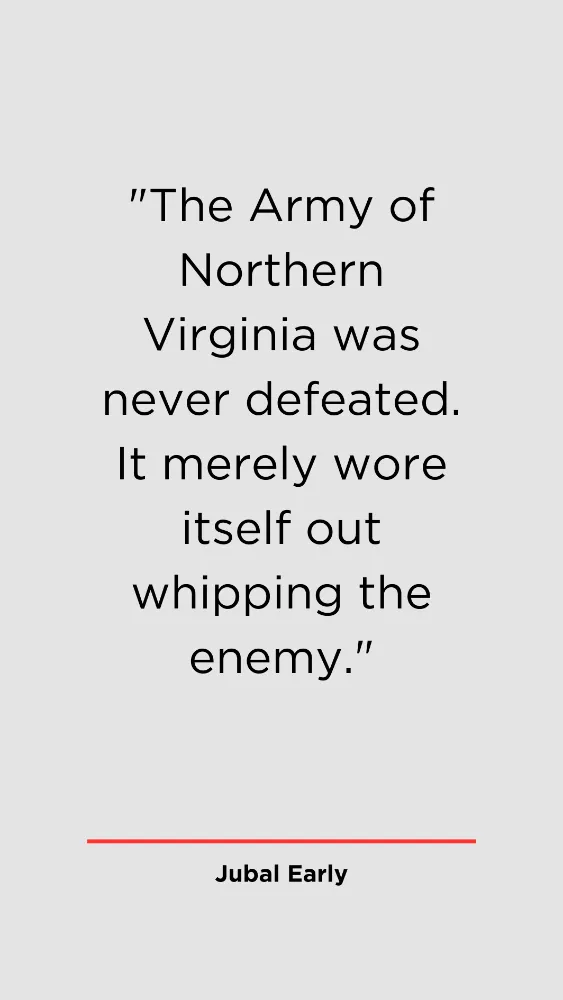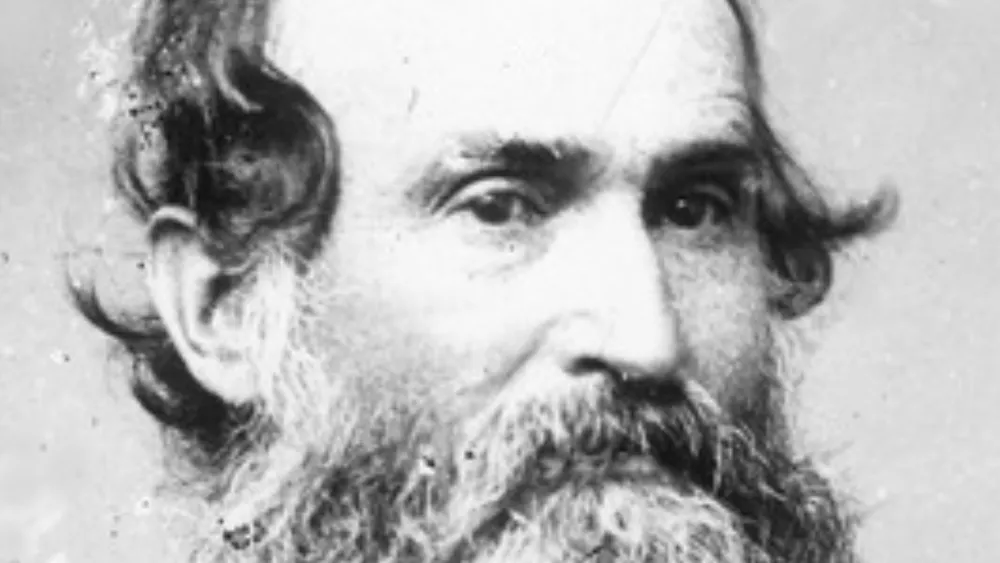Jubal Early, a prominent figure in the American Civil War from 1861 to 1865, remains one of the most critical chapters in American history. The conflict pitted brother against brother, tore families apart, and laid bare the deep-seated divisions that had simmered beneath the surface for decades.
While the names of Confederate generals like Robert E. Lee and Thomas “Stonewall” Jackson are etched into the annals of history, the war’s cast of characters extends far beyond these renowned figures.
Jubal Early’s story is one of resilience and unwavering commitment to a cause he believed in. Born in the heart of the South, Early was a product of his time and upbringing. The values of honor, duty, and loyalty to one’s homeland were deeply ingrained in him from a young age.
As he ventured into adulthood, these values would define his actions on the battlefield and in the tumultuous political landscape of the Civil War era.
The tale of Jubal Early’s life is a window into the intricate web of loyalties and allegiances that defined the Civil War era. His journey, marked by both triumphs and controversies, offers us valuable insights into the complexities of this period.
Roots of Resilience: Early Life in Franklin County
Growing up in the rolling hills of Franklin County, Virginia, Jubal Early was surrounded by the rich history and traditions of the South. His family’s Scottish-Irish roots run deep, connecting him to a heritage of resilience and determination. Little did he know that it would serve him well in the tumultuous years ahead.
From a young age, Early absorbed the ethos of the region, a blend of agrarian values, chivalry, and a profound sense of regional identity. This cultural milieu fostered his sense of duty and instilled an unwavering loyalty to the Southern cause, which would define his actions during the Civil War.
Extraordinary events may not have marked early life, but they were marked by a commitment to education and a pursuit of knowledge. His time at the United States Military Academy at West Point was a pivotal period in his life, where he honed his intellect and leadership skills.
Graduating in 1837, he embarked on a military career that would see him serve in conflicts such as the Second Seminole War and the Mexican-American War.
Jubal’s Transition to the Confederate Cause
As the winds of war swept across the nation in the spring of 1861, Jubal Early, like countless others in the South, faced a moment of profound decision. The conflict simmering beneath the surface had erupted into full-scale warfare. So, Early’s allegiance lay with his beloved Virginia. With a heavy heart, he made the difficult choice to resign his commission in the U.S. Army. Furthermore, it severed ties with the institution where he had honed his military skills.
For Early, this marked the beginning of a new chapter in his life. It is one that his service to the Confederate cause would define. He joined the ranks of the Confederate forces, taking on the mantle of a soldier in a conflict. Moreover, this event reshaped the nation’s destiny.
Early’s military career in the Confederate Army spanned the entirety of the Civil War. He found himself deeply entwined in some of its most pivotal moments. His experience and leadership qualities quickly propelled him into command positions. It is where he would demonstrate his mettle on the battlefield.
Furthermore, Early served in the Western theater. He worked under the leadership of Generals Joseph E. Johnston and P.G.T. Beauregard.
Jubal Early and The Valley Campaign
In the Shenandoah Valley Campaign of 1864, Jubal Early’s strategic brilliance shone brightly. He displayed a knack for maneuvering his forces with precision. He also executed audacious tactics that often left his Union counterparts on the defensive.
Early’s successes in the Valley, solidified his reputation as one of the Confederacy’s most effective field commanders. Moreover, he gained a remarkable victory at the Battle of Cedar Creek,
The Battle of Cedar Creek showed how clever Early was in fooling his enemies. He planned a surprising attack on the Union Army’s camps and initially won a big victory.
However, the tide of battle shifted later in the day when Union forces rallied and launched a counterattack. Ultimately, it resulted in Early’s defeat. Despite this setback, Early’s boldness and military prowess were undeniable.
Beyond his achievements, Early’s campaigns in the Shenandoah Valley significantly impacted the Civil War’s overall course.
Moreover, he diverted Union resources and attention away from the main front lines in Virginia. He also contributed to extending the war and hindering the Union’s chase of General Robert Lee’s army for the Confederacy.
Controversial Actions of Jubal Early
Early’s military prowess earned him respect in the Confederate Army. However, he was not without controversy. His aggressive tactics sometimes resulted in the plundering and destroying of civilian property. So, it earned him a reputation as a harsh and ruthless commander.
Moreover, his infamous raid on Washington, D.C., in 1864, during which his forces threatened the nation’s capital, shocked Northern leaders. Therefore, it deepened animosity between the North and South.
After the Civil War, Jubal Early faced the challenge of reconciling with the new reality of a defeated Confederacy. He embraced the Lost Cause, preserving Confederate memory and justifying its wartime actions.
Early’s writings, particularly his memoirs, provided a perspective on the war from the Confederate viewpoint.
Jubal Early’s post-war years were marked by his involvement in politics. It is also driven by his attempts to secure a pardon from the U.S. government.
While he ultimately received a pardon in 1869, he never fully embraced the Reconstruction era and remained a staunch defender of Confederate principles.

Unraveling the Complexities of a Civil War Icon
Jubal Early’s life and military career are emblematic of the complexities and contradictions of the American Civil War era. He was a skilled military tactician who fought tenaciously for his beliefs, but his actions also left a trail of controversy in his wake.
Like many figures from that tumultuous period, Early’s legacy is multifaceted, and his story reminds us of the challenges and dilemmas faced by those who lived through the Civil War.
Examining Jubal Early’s life gives insight into the deeply divided nature of the United States during the Civil War.
His experiences reflect the personal and ideological struggles of a nation torn apart by conflicting loyalties, and his legacy reminds us of the lasting impact of that conflict on American history.




